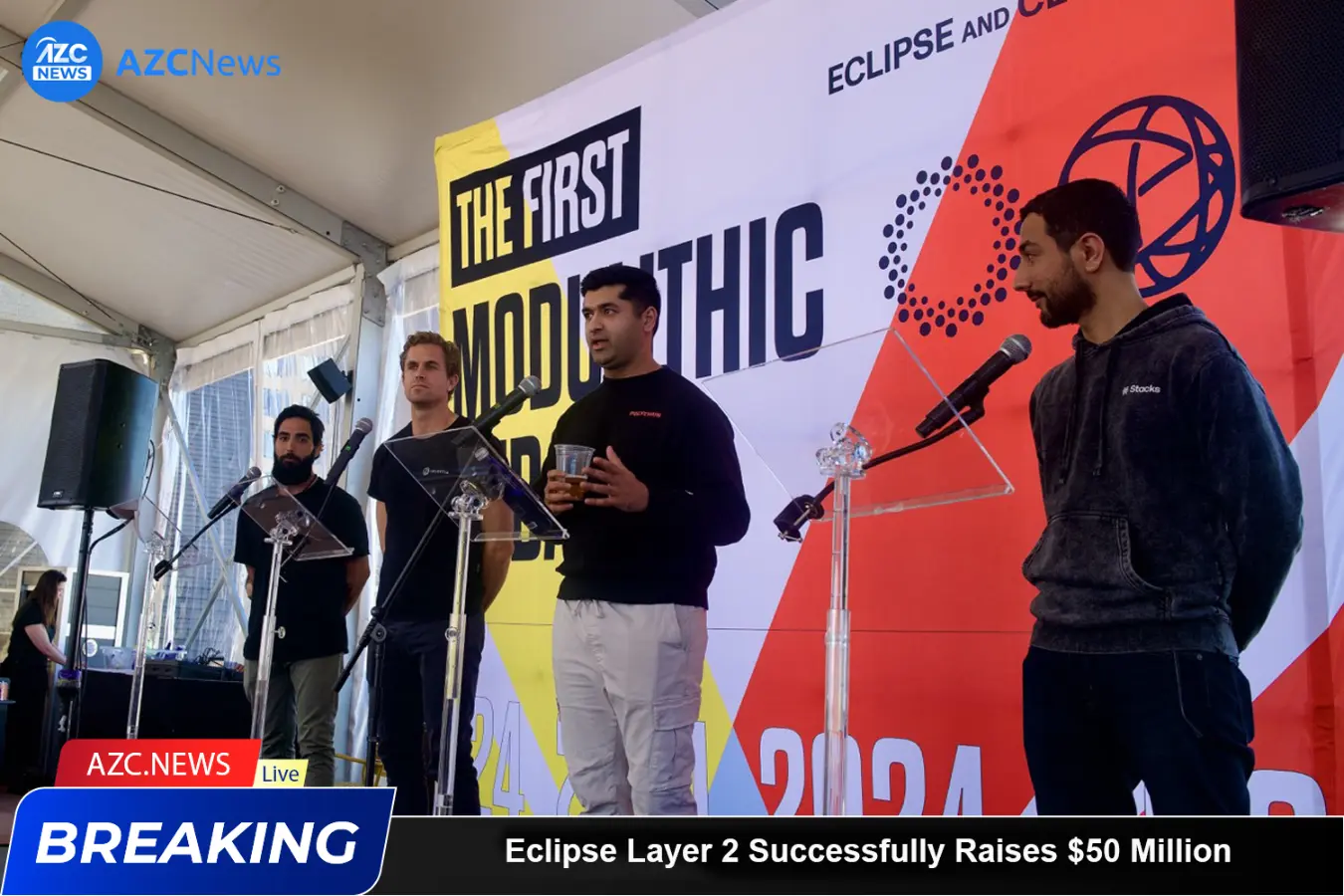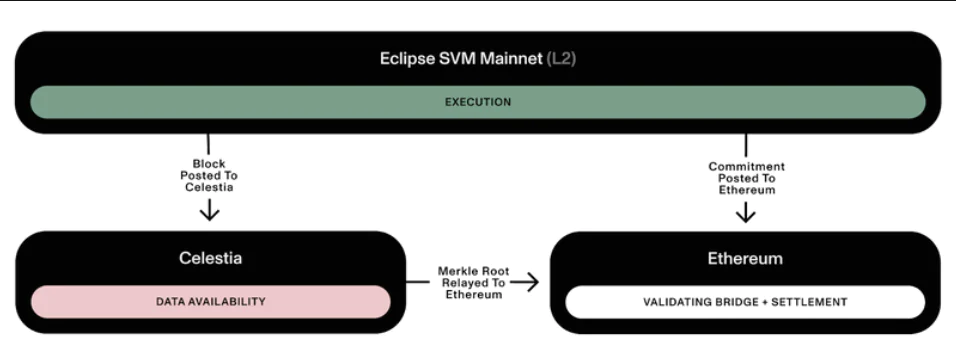Eclipse Labs, the developer of Eclipse Layer 2, has recently announced a successful Series A funding round, raising $50 million and bringing the total raised capital to $65 million.
Leading this investment round are Placeholder and Hack VC, with other participating funds including Polychain Capital, Delphi Digital, Maven 11, DBA, Fenbushi Capital, Flow Traders, GSR, Apollo Global Management, and OKX Ventures.
We're excited to announce that Eclipse Labs, the development team contributing to Eclipse Mainnet, has raised a $50M Series A co-led by @placeholdervc and @hack_vc, bringing our total capital raised to $65M.
Eclipse brings Solana performance to Ethereum with the first SVM L2. pic.twitter.com/akq46v34lN
— Eclipse (🐮,🌑) (@EclipseFND) March 11, 2024
According to the announcement, this new funding is earmarked for the development of Layer 2 solutions for the Ethereum network, utilizing the Solana Virtual Machine (SVM).
With the goal of integrating SVM into Ethereum, Eclipse Labs aims to provide an advanced Layer 2 solution that connects the two largest ecosystems today: Ethereum and Solana. Neel Somani, the founder of Eclipse Labs, shared in a statement:
Eclipse combines high-performance SVM with deep liquidity on Ethereum, while eliminating verification constraints
Ethereum needs a Layer 2 that is interoperable, scalable, and unique, capable of handling up to 99% of use cases
Related: Guide to Claiming 40 OUIX Tokens (Free)
About Eclipse
Eclipse Mainnet is Ethereum’s fastest Layer 2, powered by the Solana Virtual Machine (SVM).
Eclipse Mainnet combines the best pieces of the modular stack:
- Settlement: Ethereum – Eclipse will settle to Ethereum (i.e., the enshrined validating bridge will be on Ethereum) and use ETH as its gas token.
- Execution: Solana Virtual Machine (SVM) – Eclipse will run the highly performant SVM as its execution environment.
- Data Availability: Celestia – Eclipse will post its data to Celestia for scalable data availability (DA).
- Proving: RISC Zero – Eclipse will use RISC Zero for ZK proofs of fraud (without intermediate state serialization!)
It is anticipated that the development team will launch the final mainnet version in the second quarter of this year.







